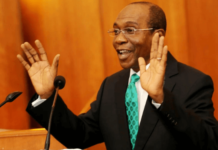The indefinite strike by the Academic Staff Union of Universities, which started on July 1, 2013, has come with both pains and gains and mixed reactions, with students eager to return to academic work
With the Academic Staff Union of Universities remaining adamant in pushing through their demands by going on strike, academic activities have been paralysed throughout the nation’s universities leading once again to the loss of appreciable academic time by the students.
This strike, which is on in protest of the non-implementation of the 2009 agreement with the Federal Government, is delicately poised with both parties not knowing yet what it will take to win.
While some have described the action as just another strike that may produce no purposeful ending, the union leadership believes that it will bring a revolution to the country’s education system.
ASUU President, Dr. Nasir Isa Fagge argued that the union had embarked on the strike to compel the Federal Government to address some other important issues endangering the quality of education in the country.
He said, “We are embarking on indefinite strike because the Federal Government reneged in the Memorandum of Understanding signed with ASUU in 2009 to pay lecturers their allowance.”
Throwing more light on the Academic Earned Allowance, ASUU chairman University of Lagos chapter, Dr. Karo Ogbinaka, said it included allowances paid as part of excess work load, responsibility allowance and allowance for supervision of Post Graduate Programmes for lecturers, head of department, deans and exam officers, among others. He added that the highest allowance is not more than N12, 500 per month, wondering why it has remained difficult for government to live up to its promises.
But the lingering strike has infuriated some of the students who seemed to have lost their patience with their lecturers and the Federal Government. Some of them told SUNDAY PUNCH that the feuding parties have no regard for their future.
Sikiru Akinola, a Political Science student at the Obafemi Awolowo University, Ile-Ife, would have graduated in December but his hopes of stepping into the next stage of his life are thinning daily as the strike continues. He expresses his frustration at being idle as a result of the inability of both parties to resolve the issue, pointing out that irregular school calendar in public institutions places their counterparts in private institutions over them when looking for employment.
He said, “I had my eyes set on December after four years at the university but with the strike, the calendar will definitely be affected and that is one of the things making graduates unemployable.
“Imagine a private university student graduating at 20 and 21 while we graduate at 27. I’ve been in school since the last seven years (NCE and Degree). It would be unfair if my time in the university has to be extended because of a fault I did not have a hand in. One of the reasons why public university graduates are getting it difficult to be employed is because they usually graduate at the average age of 27 while those in private school graduate at 20 and 21.”
He added that lecturers had taken the strike too far this time. “Though, we are in support of our lecturers, it is the belief of majority of our students that the union is being insincere with their latest showdown with government. Each time there is an ASUU strike, the students are always at the receiving end. Rather than embark on a strike which cannot solve their problems, they should use other means to press for their demands. Perhaps if there is a law that forces all political office holders to enrol their children in Nigerian universities, the schools would be better than what it is today. Dialogue and not strike, can achieve a lasting solution.”
Akinola’s position on the strike is supported by Toyosi Oguntuase, who is studying Law at the University of Ibadan. Oguntuase said the strike had created a gap between the students and academic work.
She said, “You cannot stay connected fully to your studies when you are at home and once the strike ends, examinations will start in order to make up with the time lost. The lecturers will not have the chance to complete teaching the content of our syllabuses. This utterly destroys our school calendar and curriculum. It also destroys the standard of our education and draws the students back.”
The law student also wondered if the parties involved had children in the affected institutions.
“I feel that this strike is really unfair to students considering the fact that some of the people involved in the strike don’t have their children in public universities. Also, it shouldn’t have come when students are preparing for their examinations. The union should use on other methods to make their demands instead of frustrating the students in their academic works.”
A final year student of Metallurgical and Materials Engineering at the Federal University of Technology, Akure, Onigbajumo Adetunji-Bouquiey, said Nigerian leaders have failed to pay back the nation for the free education and scholarships thy enjoyed in the past.
He said, “The generation is unlucky because they are not enjoying what our leaders enjoyed when they were going to school. They had free education and scholarships to study abroad even when their parents could not afford the quality of education they had. Our own generation has been cheated because the same leaders who had sound education in their own time now consider quality education unaffordable for the poor and less-privileged. Some of these leaders were products of the same universities but they no longer take pride in the same system that made them.”
However, Ekong Utibe, who is a final year student of Mathematics and Statistics at the Federal University of Technology, Minna, urged the Federal Government to look into the demands of the academic staff.
“The Federal Government should look into the union’s proposal as quickly as possible and agree to whatever issues they have brought up. The final year students are affected because they are doing nothing when they should be preparing for the final examinations.”
But while the students are counting their losses, lecturers are waiting to reap if the Federal Government accedes to their demands. In the meantime, some of them are using the opportunity to focus on private projects.
Prof. Ahmed Rufai of the Department of Fine Art, Ahmadu Bello University, Zaira said that the strike has given the opportunity to focus on other academic activities.
He said, “I see no gain in the strike, I feel the Federal Government is the only one gaining from the strike. So many Federal Institutions lack good infrastructures, facilities are in shambles, but the Federal Government seems not to be bothered.
“As much as we lecturers don’t support the strike, we can’t sit down doing nothing. I’m using the opportunity to write an article which has a deadline of August 2. Aside this, I spend quality time with my family.”
Prof. Sunday Ogunduyile of the Department of Industrial Design, FUTA, said he was using the break to write some journals.
“I have written so many papers for publication within this short period. Sometimes I browse the internet to update my knowledge or reach out to friends who I’ve not had contact with in a long time. We just have to keep ourselves busy and make use of the break. But this doesn’t mean we are happy about the strike because at the end of the day we still have to complete the syllabus, which puts more pressure on lecturers,” he said.
Source: Punch Nigeria




